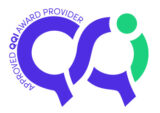Since HACCP was enshrined in law by regulation 178/2002 and 852/2004, the development of Food Safety Management Systems has become much more sophisticated. Third party certification audits and customer audits have also become more demanding with rega...
Read More
Since HACCP was enshrined in law by regulation 178/2002 and 852/2004, the development of Food Safety Management Systems has become much more sophisticated. Third party certification audits and customer audits have also become more demanding with regards to Risk Management and how the hazards in a food business are controlled.
Article 6 of 178/2002 states the “Risk Assessment should be based on the available scientific evidence and undertaken in an independent, objective and transparent manner.” International food safety standards and in particular recent revisions, demand Risk Assessments to be undertaken to justify decisions made by the Food Safety Team. An analysis of food safety standards shows that risk assessment is mentioned on multiple occasions hence the need for the team to be knowledgeable of the process.
ISO 31000:2009 – Risk Management – Principles and guidelines, outlines the principles, framework and process a food business operator needs to follow in the development of a Risk Management Plan.
Risk Assessment includes:
- Hazard Identification
- Risk Analysis, and
- Risk Evaluation.
The course explains the concept of Risk Visualisation where every hazard identified is evaluated based on a scoring system from 1-9 or Green, Amber or Red. As one of the key recommendations from the New Zealand Government inquiry into WPC80 incident (Clostridia Botulinum) was that “staff must receive adequate training in risk assessment procedures, which should be systematic, transparent and credible” (page 10). Numerical risk evaluation and risk visualisation will aid this goal.
The above concepts which have been used for many years in pharmaceutical and medical device process planning are now migrating to the Food processing sector. This course is designed for those working in the Food Industry who have already successfully completed the Level 5, HACCP Development, Implementation & Verification course and now wish to pursue the higher level QQI certification in HACCP.
The HACCP System model as advocated by the FDA uses ISO 22002 to construct a comprehensive PRP programme addressing the 15 prerequisite elements. This will ensure the processing environment including utilities and services is adequately controlled thus reducing the possibility of hazards originating from these sources. The Food Safety Modernization Act (FSMA) has now introduced the idea of Risk based Preventive Controls (PCs) therefore Food Safety Team Leaders need to be competent and confident with this concept when communicating with customers and third party Auditors.
Collapse



